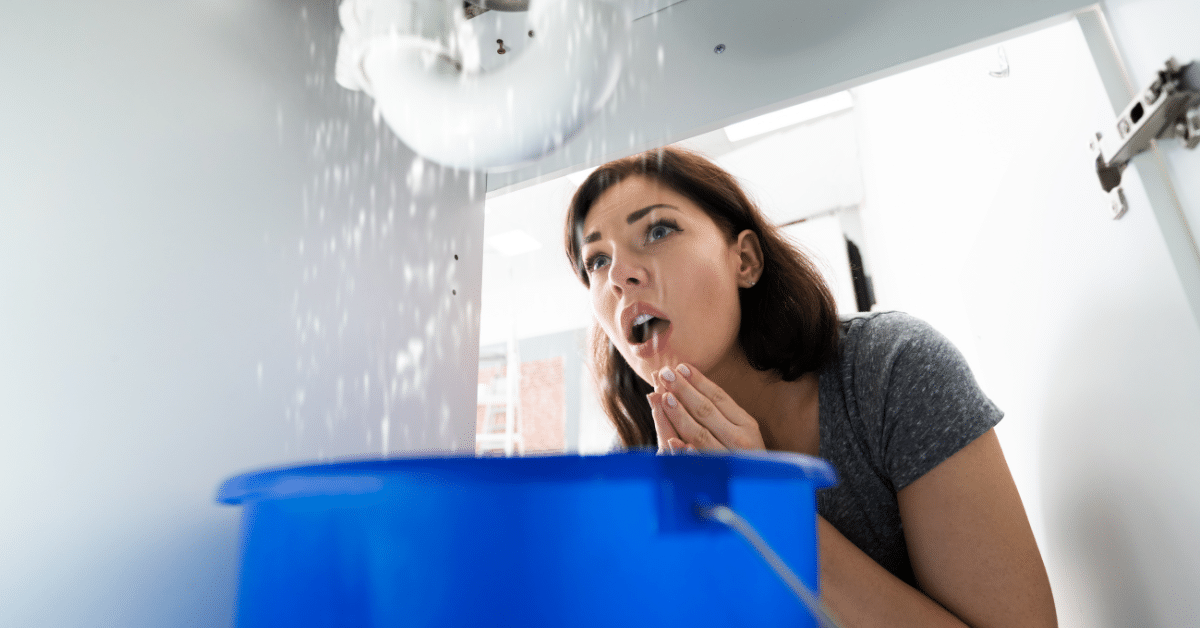ABOUT THE AUTHOR
Max Rose
Max Rose is the owner of Four Seasons Plumbing, a plumbing company in Asheville, North Carolina.

Knowing what to do in plumbing emergencies can save you time, money, and stress. A burst pipe, a clogged toilet, or a leaking faucet can turn a nice day into a messy, chaotic situation. If you need help in situations like these, the best step is to call on the most dependable emergency plumbing services Asheville, NC, residents have grown to rely on.
However, you sometimes need to step in before professional help arrives. This guide will walk you through the steps you should take during a plumbing emergency, helping you minimize damage and take control.
The first thing you need to remember here is: don’t panic. Panicking will never do anyone any good, and it may even lead you to make rash decisions that will only make things worse. We suggest keeping a cool head while you analyze the problem and then figure out what to do next.
Start by identifying the source of the problem. For example, if you’re dealing with a leak, the first thing to do is look for the source. Is it coming from a pipe or a fixture? Is the water confined to a small, specific spot, or is it flooding a larger area?
How severe the problem is will help you decide what to do next. A minor leak can be handled temporarily with DIY repairs, but if you see a lot of water gushing out from a burst pipe and it’s starting to flood the area around you, calling the professionals would be your best bet.
Once you’ve assessed the situation, your next move is to stop the water flow.
Sometimes, there isn’t enough time to locate the main shut-off valve, or sometimes, its location makes it very difficult to reach. In this case, another shut-off valve should be located near the affected area. For example, if you’re dealing with a leaking faucet on a kitchen sink, the individual shut-off valve is typically located underneath that sink.
You should then drain the water pipes to make sure that if any water is still inside the system, it can flow out and prevent water pressure from building up. Make sure you have turned off the main water valve first, then go to the lowest area of your home and open all the faucets there. Move to the next upper level and do the same until all the faucets in your home have been opened. While you’re at it, we recommend flushing all the toilets to ensure all the tanks are emptied.
After draining the water from the pipes, your next step is to contain the leak. Your options are:
Be sure to document all the water damage after you have taken control of the situation and contained the leak. This is especially important if you need to file insurance claims later.
You should always call a professional after a plumbing emergency, even if you did manage to handle it temporarily. A temporary fix may have prevented more damage, but calling in professional help will allow them to diagnose and fix the underlying issue properly.
When contacting a plumber, provide as much detail as you can. Try to explain the situation clearly and let them know what steps you took to deal with the problem before calling them.
Handling a plumbing emergency doesn’t have to be overwhelming. You can manage the situation effectively by staying calm, turning off the water, containing the leak, and calling a professional. Remember to document the damage for insurance purposes and consider regular maintenance to prevent future emergencies.
Looking for expert plumbing services in Asheville, NC? Four Seasons Plumbing has you covered. Our team of experienced professionals is dedicated to providing top-notch plumbing services that can answer your specific needs.
Whether you need plumbing repairs, water heater installations, or drain cleaning services, we’re here to help. Visit our website or contact us today to learn more and schedule your consultation!
ABOUT THE AUTHOR
Max Rose is the owner of Four Seasons Plumbing, a plumbing company in Asheville, North Carolina.